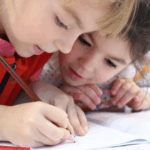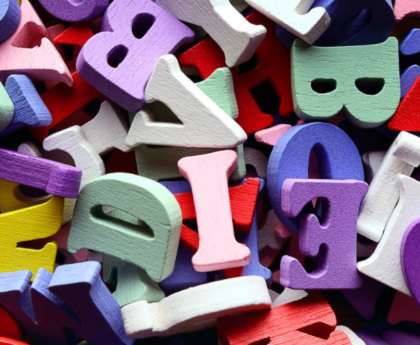Your child demonstrates remarkable creativity and advanced thinking skills, yet struggles with basic reading tasks. They can discuss complex topics with sophisticated vocabulary but stumble over simple words on a page.
If this sounds familiar, you might be parenting a twice-exceptional reader—a child who is both intellectually gifted and has a learning difference. Understanding this unique combination can transform how you support your child’s literacy development.
Understanding Twice-Exceptional Readers
Twice-exceptional (2e) readers are children who possess both intellectual giftedness and a learning difference such as dyslexia, ADHD, or auditory processing challenges. These children often fly under the radar because their gifts can mask their learning struggles, while their learning differences can overshadow their exceptional abilities.
The term “twice-exceptional” was first coined by researchers in the 1970s, but it’s only recently gained widespread recognition in educational settings. These children represent approximately 3-5% of the school population, yet they’re significantly underidentified and underserved in most educational systems.
What makes 2e readers particularly challenging to identify is the way their strengths and weaknesses interact. A gifted child with dyslexia might use their superior reasoning skills to memorize entire books, appearing to read fluently while actually relying on memory rather than decoding skills. Their high intelligence allows them to compensate for reading difficulties in ways that mask the underlying learning difference.
According to the National Association for Gifted Children, twice-exceptional students often experience what researchers call “asynchronous development.” Their intellectual, emotional, and physical development occurs at different rates, creating unique learning profiles that don’t fit traditional educational models. A 2e reader might demonstrate graduate-level thinking about scientific concepts while struggling to decode words at a first-grade level.
These children frequently experience frustration, anxiety, and lowered self-esteem because they’re acutely aware of the disconnect between their intellectual capabilities and their academic performance. They know they’re smart, but they can’t understand why reading feels so difficult. This emotional component is crucial for parents to understand and address alongside the academic challenges.
The Signs of Twice-Exceptional Readers
Common characteristics of 2e readers include exceptional oral vocabulary paired with poor spelling or writing skills. They might engage in sophisticated discussions about complex topics, but struggle to read age-appropriate texts independently. Many 2e readers show intense interests in specific subjects while demonstrating inconsistent performance across different academic areas.
Many twice-exceptional readers develop sophisticated compensation strategies that can delay identification of their learning differences. They might use context clues extensively, rely heavily on pictures, or avoid reading aloud. While these strategies demonstrate their intelligence, they can prevent children from developing essential decoding skills needed for reading independence.
Five Essential Tips for Supporting Twice-Exceptional Readers
Here are some tips to encourage learning for a twice-exceptional reader.
Tip 1: Separate Intellectual Ability from Reading Skill Development
Recognize that your child’s giftedness and reading challenges are distinct issues that require different approaches. Provide intellectually stimulating content through audiobooks, documentaries, and discussions while simultaneously working on foundational reading skills.
Tip 2: Focus on Strengths While Addressing Weaknesses
Build reading instruction around your child’s interests and strengths while systematically addressing their learning differences. If your child is fascinated by astronomy but struggles with phonics, use space-themed books and materials for decoding practice. Their passion will sustain motivation through challenging skill-building activities.
Tip 3: Provide Appropriate Accommodations Without Lowering Expectations
Twice-exceptional readers need accommodations that allow them to demonstrate their knowledge while still developing essential reading skills. This might include extended time for reading assignments, access to audiobooks for content learning while practicing decoding with simpler texts, or allowing oral responses to show comprehension of complex material.
Tip 4: Address the Emotional Component
Twice-exceptional readers often experience significant frustration and anxiety about their reading challenges. Validate their feelings while helping them understand their learning profile. Explain that having both gifts and challenges is normal and doesn’t reflect their intelligence or worth.
Tip 5: Use Multi-Sensory, Systematic Reading Instruction
Twice-exceptional readers benefit from structured, systematic phonics instruction that engages multiple senses. Traditional whole-language approaches often fail these students because they rely heavily on the very skills that are challenging for them. Instead, use programs that teach letter-sound relationships explicitly and systematically. Incorporate movement, visual elements, and tactile experiences into reading lessons.
Work with Schools to Support Your Twice-Exceptional Reader
Advocating for your twice-exceptional reader in school settings requires preparation and persistence. Educators may not be familiar with twice-exceptionality, so you may need to educate them about your child’s unique needs. Come prepared with documentation of both your child’s gifts and their learning challenges.
Request comprehensive evaluations that assess both intellectual ability and potential learning differences. Standard assessments might not capture the full picture of a twice-exceptional learner. Look for evaluators experienced with gifted children who understand how high intelligence can mask learning differences.
Nurture Both Gifts and Growth in Your Exceptional Reader
Twice-exceptional readers possess remarkable potential that requires understanding, patience, and targeted support to fully develop. These children can achieve amazing things when their learning differences are addressed while their intellectual gifts are nurtured. The key lies in recognizing that giftedness and learning challenges can coexist, and both aspects of your child’s profile deserve attention and support.
Ready to provide your twice-exceptional reader with systematic, science-based reading instruction that honors both their gifts and their challenges? Start your free 7-day trial with Reading.com today and discover how structured literacy can help your exceptional child build the reading skills they need while celebrating the remarkable mind they possess.





